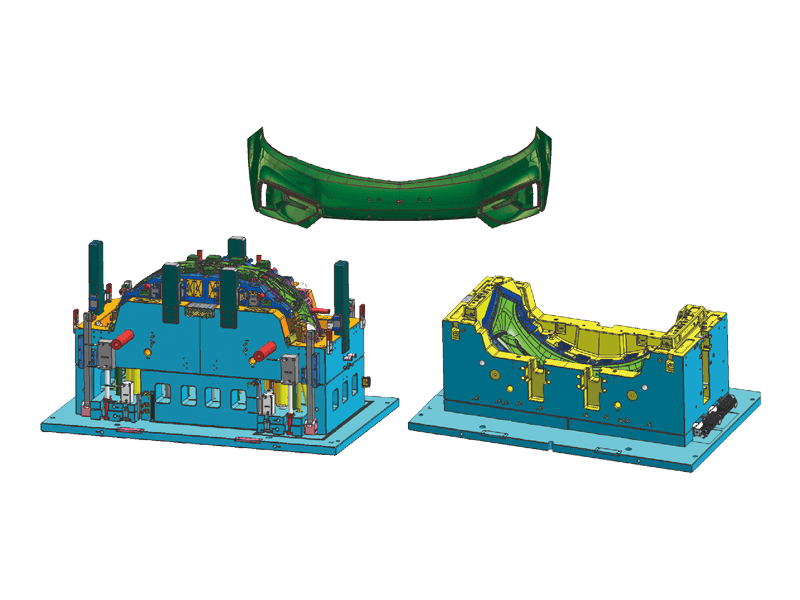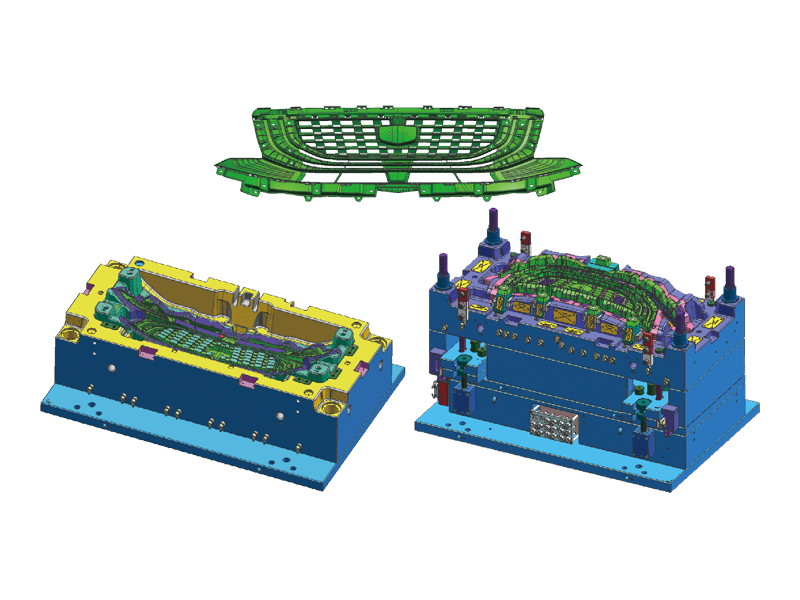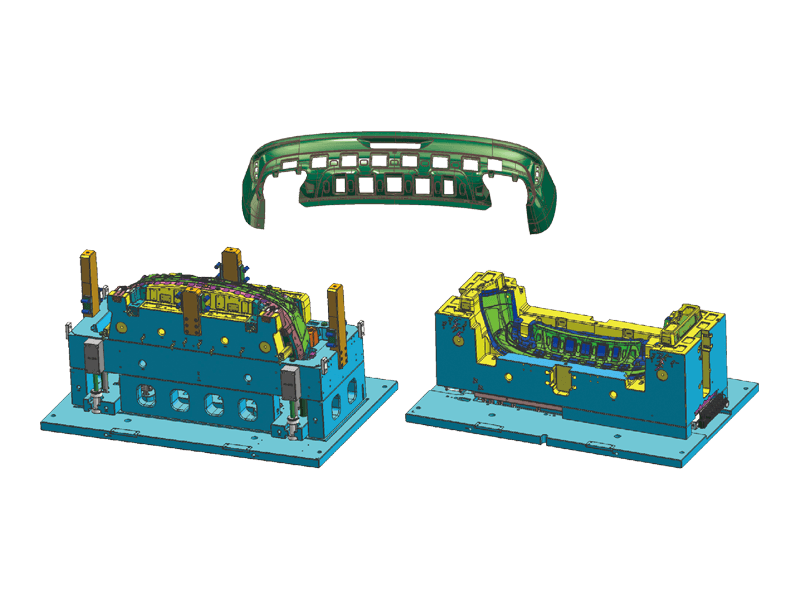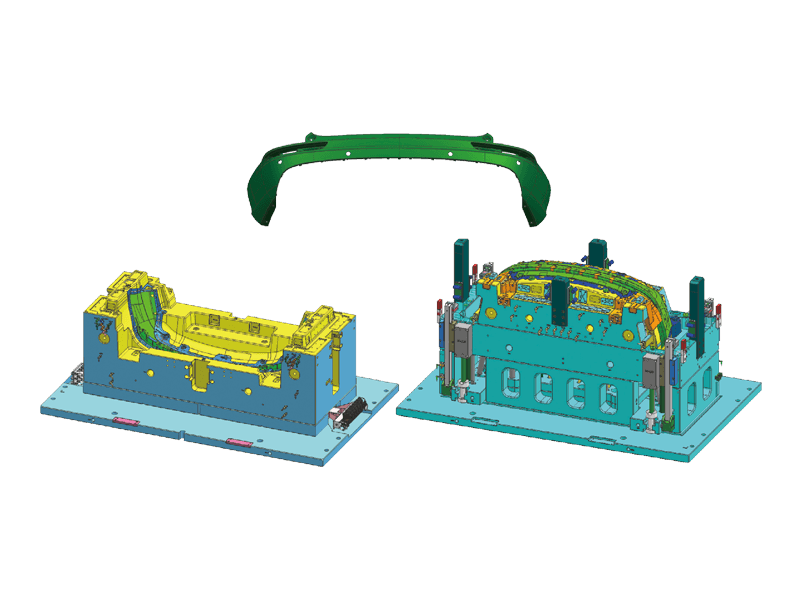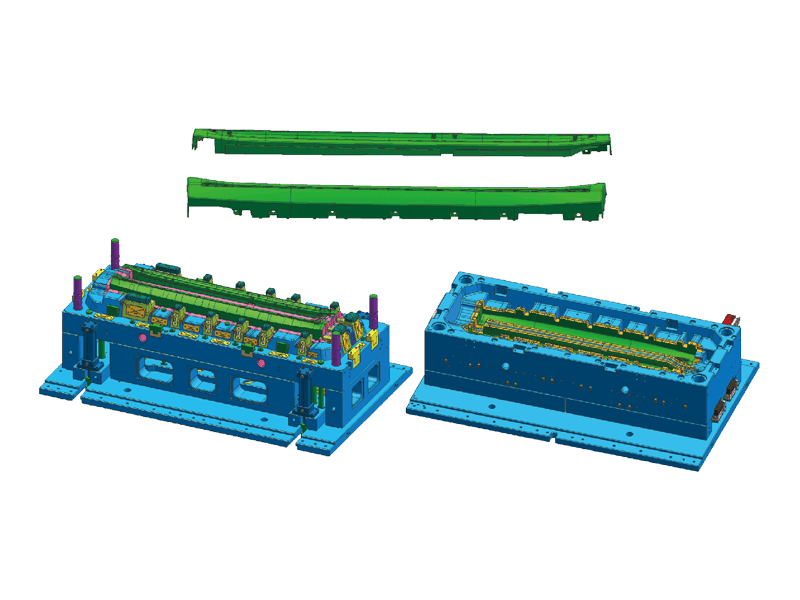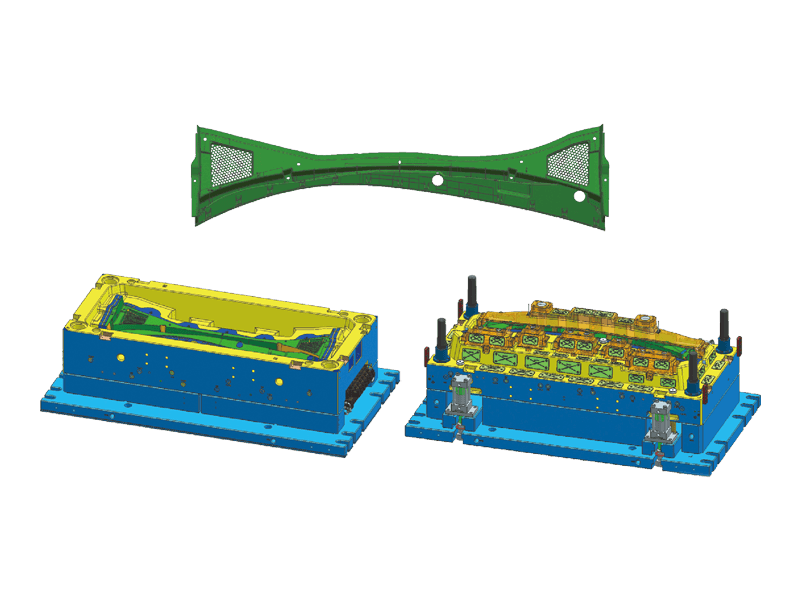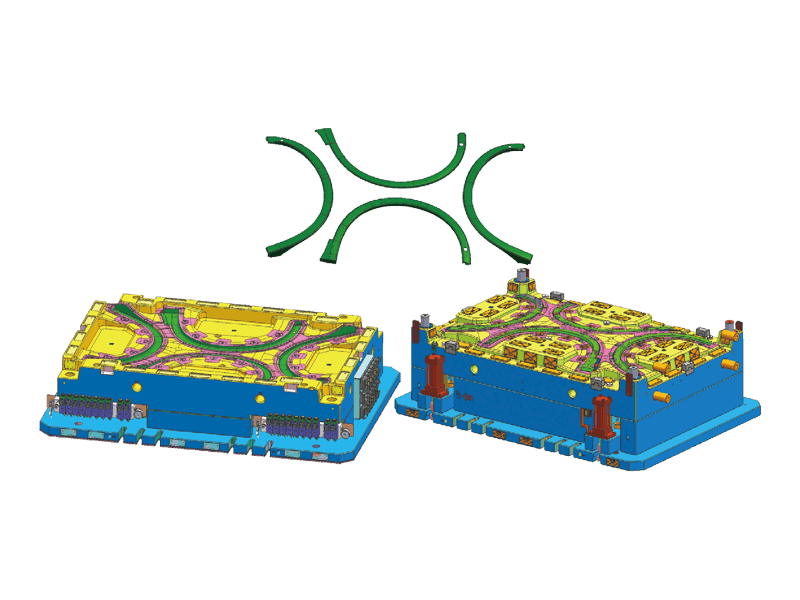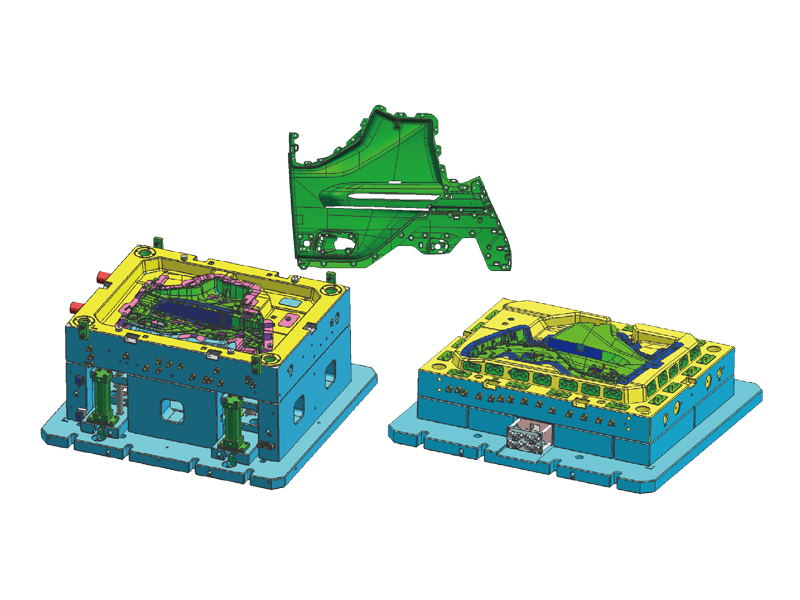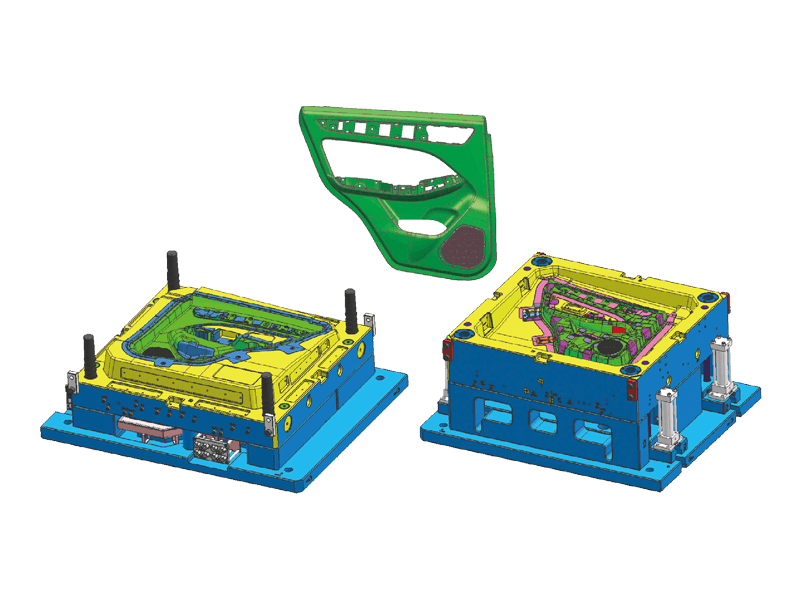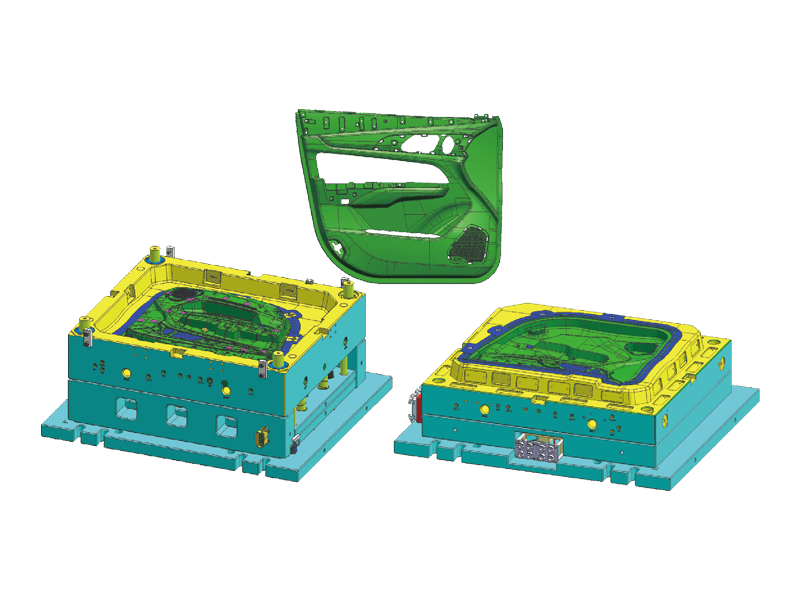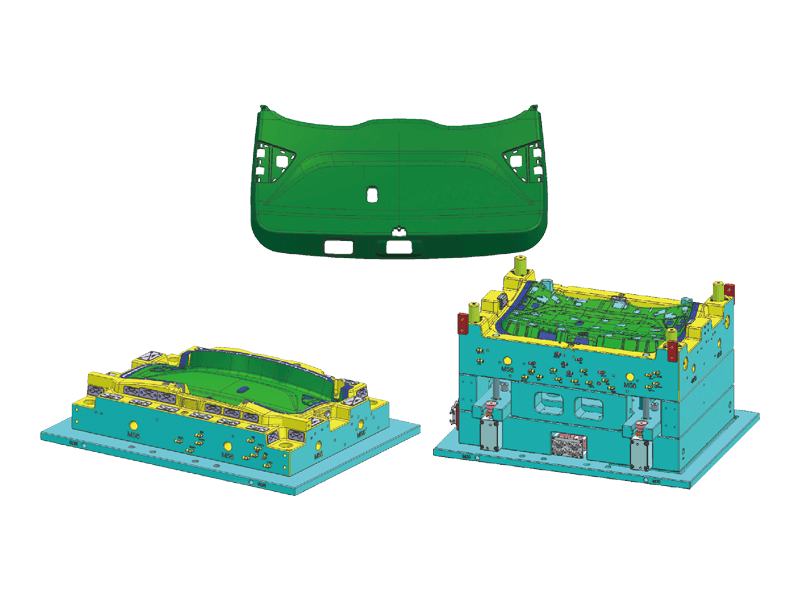In the highly competitive automotive industry, the focus on both aesthetics and functionality has driven manufacturers to innovate at every step of the production process. One area that has seen significant technological advancement in recent years is the manufacturing of instrument panels. Instrument panel molds are at the forefront of this evolution, offering an level of performance, precision, and design flexibility. As the automotive industry pushes toward safer, more efficient, and more visually appealing vehicle interiors, instrument panel molds are playing a critical role in achieving these goals.
What are Instrument Panel Molds?
Instrument panel molds are specialized molds used to produce the dashboard components of vehicles. The instrument panel, often referred to as the dashboard, serves as the central hub for a car’s controls, display screens, and information systems. As a result, the parts produced using these molds must be highly durable, aesthetically pleasing, and capable of withstanding various environmental stresses.
Typically made of plastics and composites, instrument panels need to fulfill a range of requirements including structural integrity, heat resistance, and the ability to accommodate various electronic components. The mold-making process ensures that every part is formed with precision, meeting strict automotive industry standards for both safety and performance.
The Growing Demand for High-Quality Instrument Panel Molds
The demand for high-quality instrument panel molds has skyrocketed as automotive manufacturers continue to prioritize the interior design and user experience of their vehicles. With the increasing complexity of in-car technology—such as integrated touchscreens, digital displays, and advanced driver assistance systems (ADAS)—the need for advanced molding techniques has never been greater.
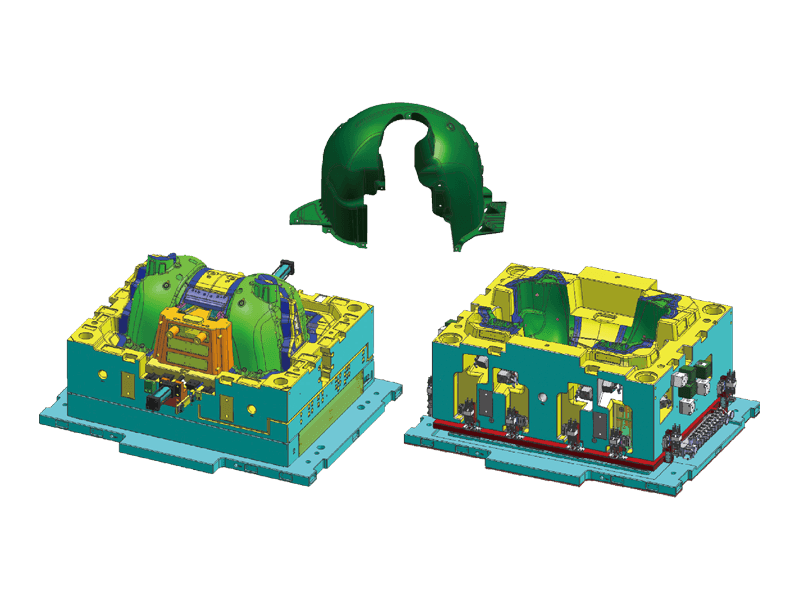
Instrument panels now incorporate more complex features than ever before. The combination of multiple materials, ergonomic designs, and space for intricate electronics requires molds that can accommodate these sophisticated features. As a result, instrument panel molds have evolved significantly, with manufacturers leveraging advanced technologies to improve both functionality and aesthetics.
Key Advantages of Modern Instrument Panel Molds
Precision and Accuracy
One of the notable advantages of modern instrument panel molds is their ability to produce parts with precision. This is crucial in the automotive industry, where even the smallest discrepancies in part dimensions can lead to performance issues or safety concerns. Instrument panel molds are designed to ensure that every component fits within the vehicle's interior, regardless of its complexity. Whether it’s a seamless, curved dashboard surface or the integration of advanced digital displays, the precision achieved with modern molds is unparalleled.
The tight tolerances achieved by these molds are essential for ensuring that the instrument panel components can be seamlessly assembled with other vehicle parts. This precision also contributes to a more refined overall vehicle design, which is critical in attracting consumers looking for both quality and style in their vehicles.
Material Versatility
The versatility of materials used in modern instrument panel molds is another significant advantage. The molds are capable of working with a wide variety of materials, including plastics, composites, and thermoplastic elastomers. This flexibility allows manufacturers to select the material for specific applications, whether it’s for a lightweight, impact-resistant panel or a soft-touch surface for enhanced driver comfort.
With advancements in material science, manufacturers are also able to create instrument panels with enhanced durability, flexibility, and heat resistance. For example, newer composite materials are being used to provide higher strength-to-weight ratios, while thermoplastic materials are helping to reduce the overall weight of the vehicle—a key consideration for electric vehicles (EVs), where weight reduction is crucial for performance and energy efficiency.
Enhanced Aesthetic Appeal
As automotive design continues to emphasize a premium and futuristic aesthetic, instrument panel molds are evolving to meet these design trends. The precision of modern molds enables intricate patterns, textures, and finishes that enhance the visual appeal of the instrument panel. Whether it's a high-gloss surface or a matte finish, the aesthetic capabilities of today’s instrument panel molds allow for customization that meets consumer expectations for quality and luxury.


 English
English 中文简体
中文简体